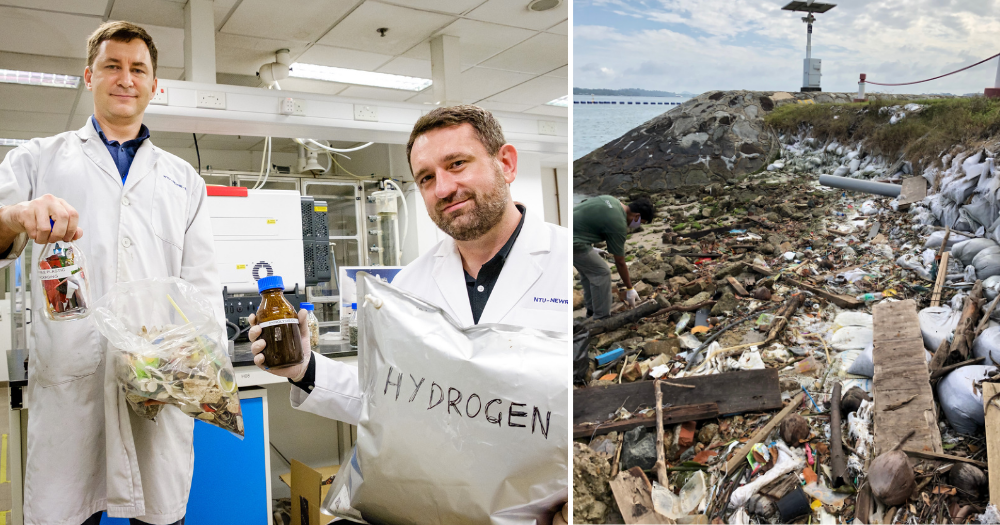Follow us on Telegram for the latest updates: https://t.me/mothershipsg
Scientists from Nanyang Technological University (NTU) have devised a new method to convert plastic waste into hydrogen and carbon products.
These can be used to generate clean electricity, and have a variety of industrial purposes, respectively.
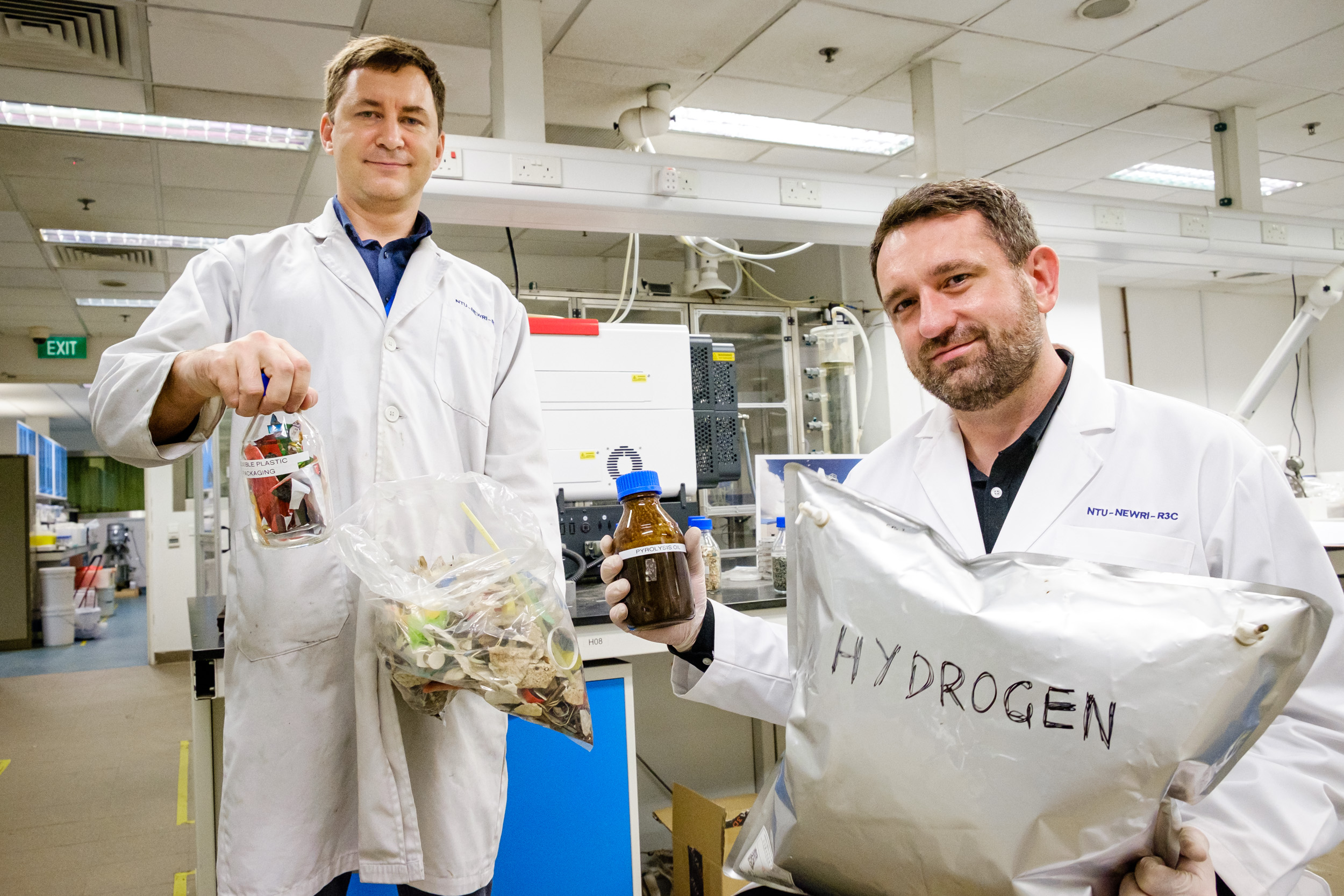 NTU Assoc Prof Grzegorz Lisak (right) with the hydrogen that was produced from the plastic litter held by Dr Andrei Veksha (left). Photo from NTU
NTU Assoc Prof Grzegorz Lisak (right) with the hydrogen that was produced from the plastic litter held by Dr Andrei Veksha (left). Photo from NTU
Converting plastic waste into hydrogen and carbon
Plastic waste is typically challenging to recycle as it comprises a mix of different types of plastic. Plastic recycling plants thus expend much resources and manpower to sort the plastic waste before it can be processed.
NTU's new method plugs this gap, as different types of plastic waste, even contaminated ones, can be used, co-inventor Associate Professor Grzegorz Lisak shared during a media briefing.
Through the new method developed, plastic waste is first decomposed and heated into gases that contain low concentrations of hydrogen molecules.
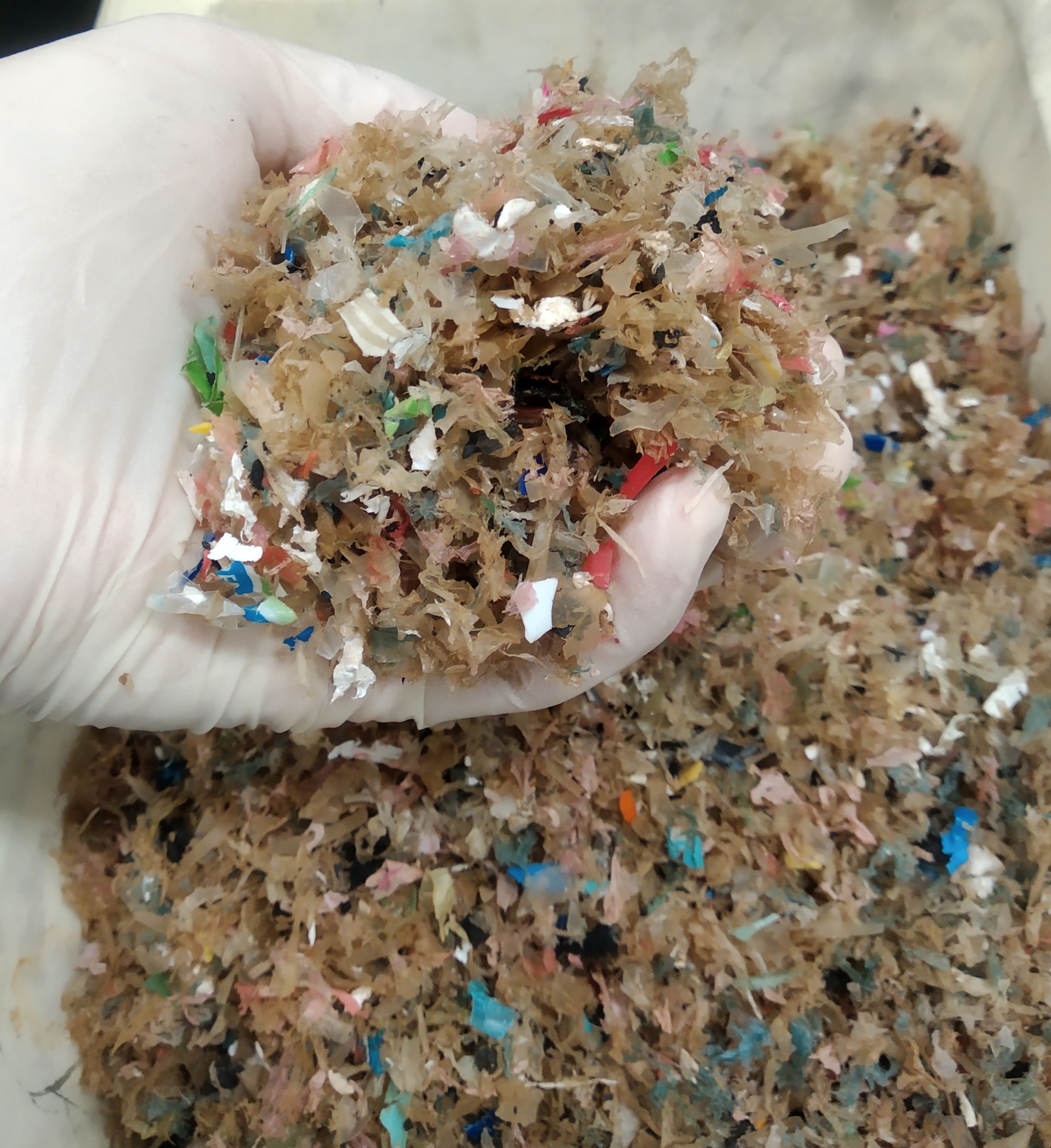 Crushed plastic litter which is then fed into the pyrolysis system to be processed. Photo from NTU
Crushed plastic litter which is then fed into the pyrolysis system to be processed. Photo from NTU
The gases then enter a reactor with a catalyst, and the technology enables the release of hydrogen fuel and the formation of a type of solid carbon known as carbon nanotubes.
The process, which is called pyrolysis, is particularly effective as plastic waste is rich in hydrogen and carbon.
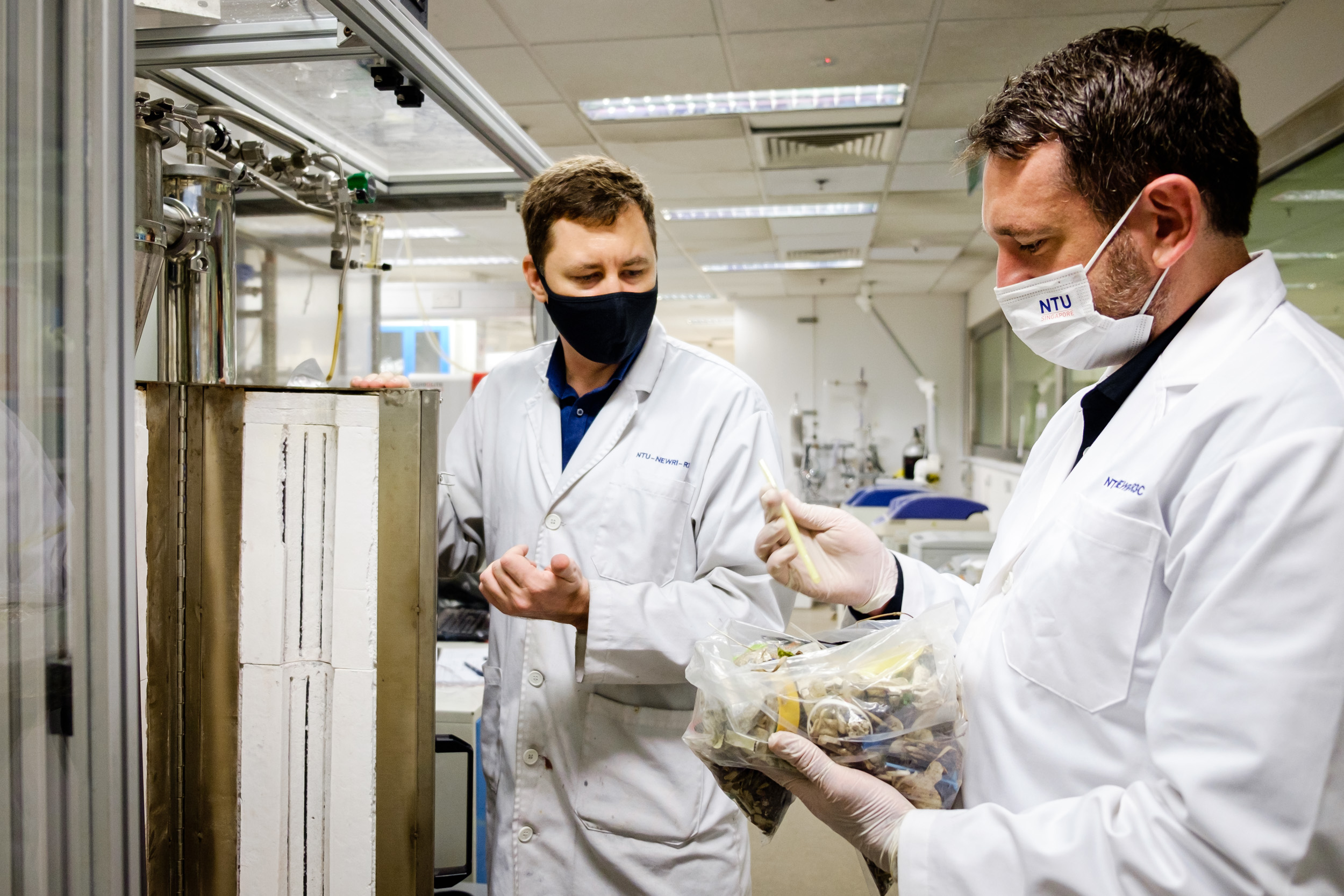 Lisak (right) and Veksha (left) with the pilot pyrolysis system. Photo from NTU
Lisak (right) and Veksha (left) with the pilot pyrolysis system. Photo from NTU
Hydrogen produced can be used to generate clean electricity and power fuel cells like those found in electric vehicles, and is more environmentally-friendly than fossil-fuel-based petrols.
NTU's research team stated that the solid carbon produced via their method is much easier to store as compared to the polluting gaseous carbon dioxide emissions from plastic waste incineration.
Additionally, the solid carbon can be easily sold as a manufacturing feedstock for speciality chemicals or biofuels.
Carbon nanotubes also have numerous applications such as in solar panels, batteries, smartphones and automotives.
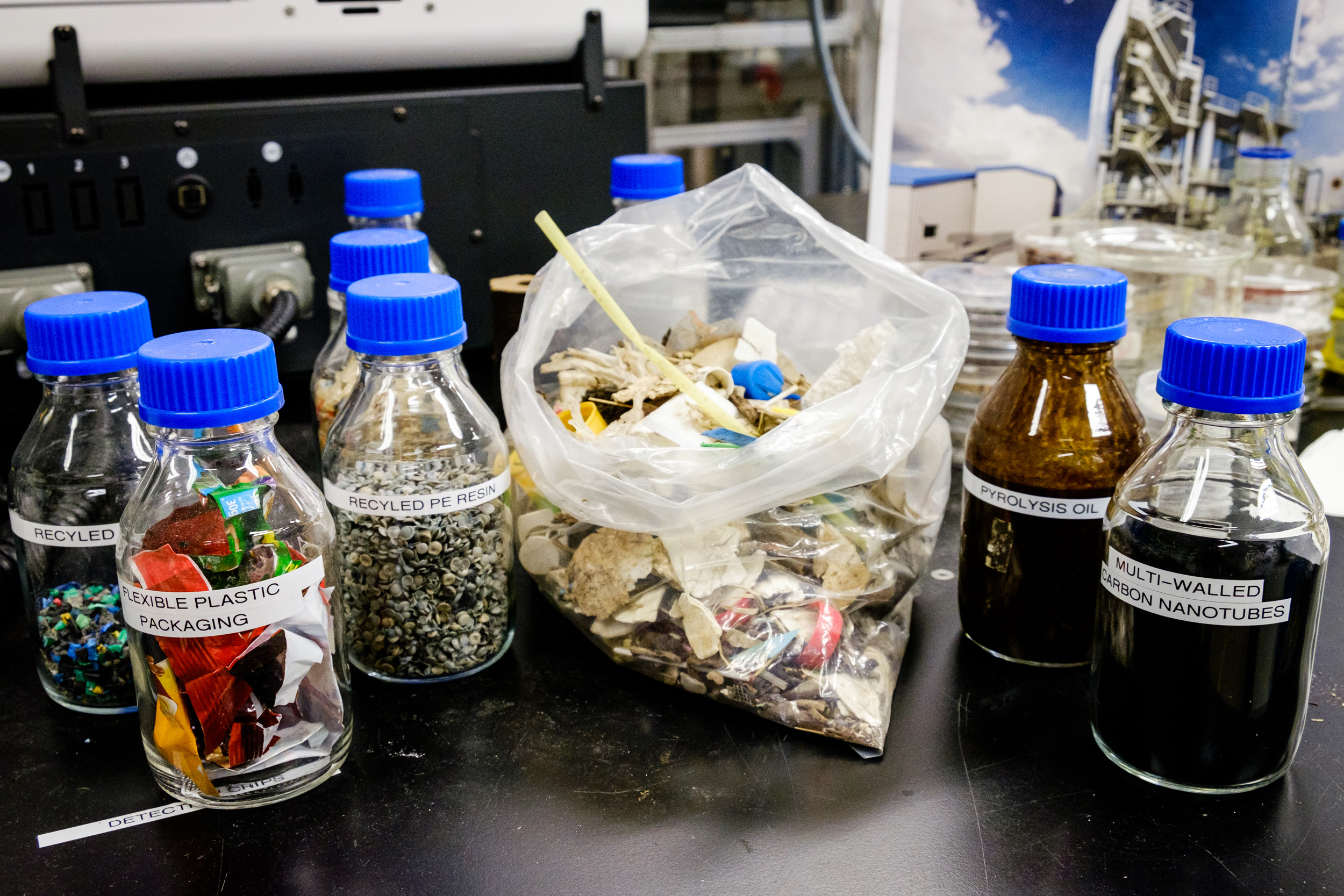 Photo from NTU
Photo from NTU
Using ocean plastics
Plastic waste used for this research project was collected from local waters in collaboration with Ocean Purpose Project, a non-profit based in Singapore.
In November 2021, researchers from NTU’s Nanyang Environment and Water Research Institute (NEWRI), participated in a kayak race organised by the Ocean Purpose Project to collect plastic waste along Singapore shores.
While helping to clean up our shores, the plastic waste was also used as research materials.
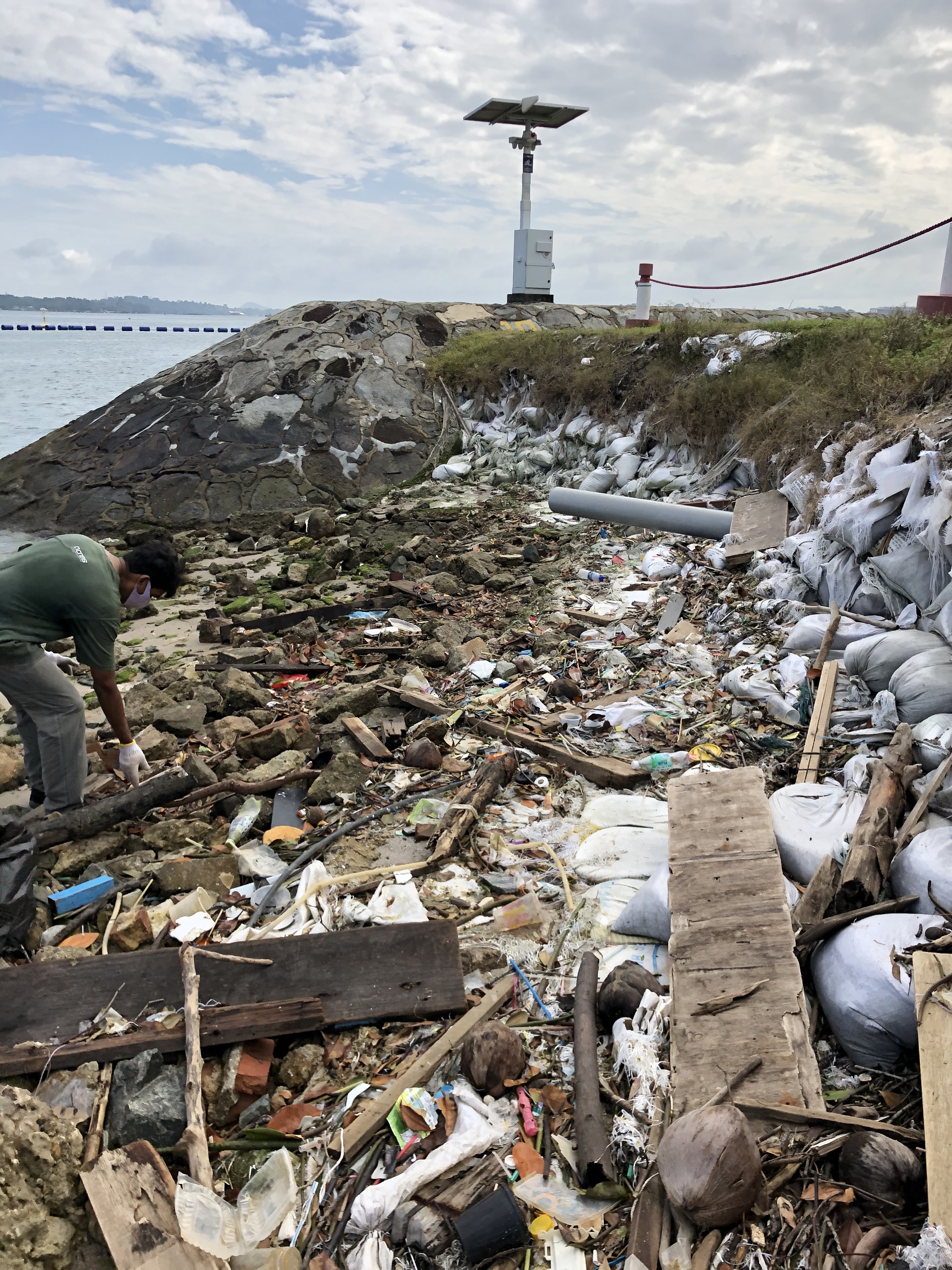 Trash collected from the ocean in Pasir Ris. Photo from Ocean Purpose Project
Trash collected from the ocean in Pasir Ris. Photo from Ocean Purpose Project
NTU estimates that with the amount of unrecycled plastic waste generated in Singapore each year — around 832 million kg — the converted hydrogen energy could potentially power up to 1,000 five-room apartments for a year.
Converting the 269 million kg of plastic waste currently floating in the oceans into energy could also power an electric vehicle for 20 to 40 million km, the NTU team estimates.
This is around 500 to 1000 times the Earth’s circumference.
Scaling up
The development of the technology is part of a multi-million joint project with Bluefield Renewable Energy, a local environmental firm that specialises in mobile waste to resources technologies.
The project is aims to develop feasible solutions to economically scale up the conversion of plastic waste to hydrogen over the next three years.
Technologies to convert other challenging waste streams into energy and valuable resources — such as syngas, biochar, activated carbon and carbon nanotubes — are also being explored as part of this project.
Bluefield Renewable Energy's CTO, Craig Gavin, shared added that the market is currently pivoting towards to a hydrogen-powered economy.
Related stories
Top photo from NTU and Ocean Purpose Project
If you like what you read, follow us on Facebook, Instagram, Twitter and Telegram to get the latest updates.
